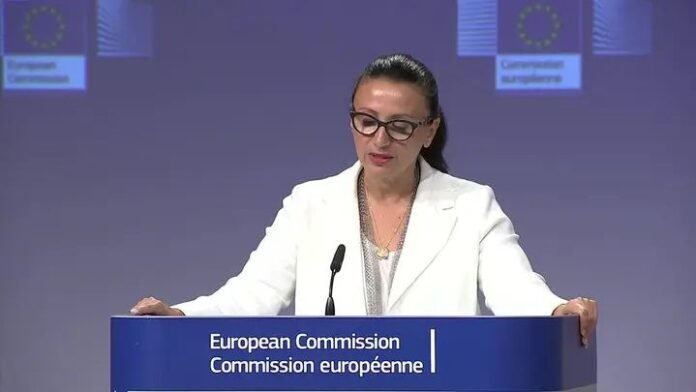In a pivotal political moment, the European Union’s spokesperson for foreign affairs and security policy unequivocally stated: “Neither the European Union nor any of its member states recognize the so-called ‘Sahrawi Republic’ led by the Polisario Front.”
This seemingly straightforward statement carries profound implications and comes at a critical time.
Are we witnessing a definitive shift in Europe’s stance on the Sahara issue?
Or is this still a diplomatic maneuver? Does this represent a clear victory for Moroccan diplomacy under royal leadership, or an attempt to manage tensions after years of ambiguous messaging?
No Invitation from Europe: Is the African Union Exposed?
The EU spokesperson also clarified that any potential presence of the separatist entity at the upcoming ministerial meeting between the EU and the African Union is solely the responsibility of the African Union.
This raises questions about the African Union’s consistency: How can an entity not recognized by the UN or the EU remain a member of an organization meant to represent recognized sovereign states? Isn’t it time for the African Union to rectify this legacy of the past?
The Triumph of Realpolitik?
This EU statement can be seen as a turning point in Europe’s approach to regional conflicts.
Under the leadership of His Majesty King Mohammed VI, Morocco has established strong international relations based on clear positions and strategic vision.
It is no longer acceptable to support Morocco in certain areas while tolerating indirect political attacks.
Morocco: From Defense to Offense?
Morocco is no longer content to be a “noble victim.”
It asserts itself as a regional power, redefining partnership terms, especially with European powers.
Is this the beginning of a new phase of positive political engagement, where Morocco imposes its positions through achievements and clear vision?
Who Still Supports the Polisario?
If Europe does not recognize the “Sahrawi Republic,” and many Latin American countries have revised their positions, who remains alongside the Polisario?
Who finances it?
Who ensures its survival?
Isn’t it time for the UN to acknowledge that this conflict is no longer a confrontation between two parties, but a card used by undeclared actors?
Conclusion: No Legitimacy Without Recognition
In a world facing increasing security and economic challenges, there is no longer room for fictitious entities.
An entity recognized by no one is not a state.And a territory where schools are built, wells are drilled, and elections are held is a territory of real sovereignty.
In this equation, Morocco does not need anyone’s approval, but others must correct their positions before it’s too late.


